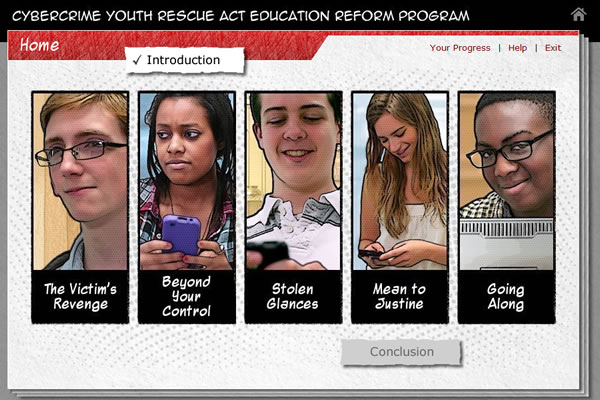PDP Develops Online Course on Cyberbullying
Today’s youth have expanded their interactions into cyberspace at unprecedented levels. With the ease of use and instant gratification of social media sites like Facebook and Twitter, many youth are essentially live-blogging their day-to-day lives.

Most of us remember the challenges of navigating the tricky social waters of adolescence. Awkwardness, cliques, fear of ostracism and the desire for popularity are deeply ingrained in our memories and remain the fabric of many teens’ lives. Despite focused efforts on empowering youth and helping teens develop positive social mores, peer pressure and bullying still exist. What’s different now is that the neighborhood bully has also expanded into cyberspace. The nasty message written on the restroom wall reached a very limited audience, but the same cruelty posted online can literally be seen around the world in a matter of seconds. While cyberbullying can take many forms and involve different levels of intensity, real harm can easily spill over into the offline world through social ostracism, psychological torment, and even physical threats. The effect on youths’ educational experiences is often substantial.
In September 2011, New York State Governor Andrew Cuomo signed the Cybercrime Youth Rescue Act, which charged the Office of Children and Family Services (OCFS), in consultation with the Division of Criminal Justice Services (DCJS) and the State Education Department, to develop and implement an education reform program for youth who have been charged with or convicted of cyberbullying or sending obscenity or nudity through electronic means, commonly known as sexting. The program’s goal is to help youth recognize the seriousness and widespread effects of these behaviors and to modify their actions before they escalate to levels with more dire legal consequences.
.jpg)
OCFS turned to the expertise of PDP to develop an effective, engaging online course for youth aged 14-17 who have been adjudicated for cyberbullying and sexting offenses. Working in consultation with a nationally recognized expert, PDP developed a self-guided online training program that uses reality-based scenarios to teach adolescents about the legal and non-legal consequences of their actions and help them learn to make better choices in using technology. The program explains what cyberbullying and sexting are, describes why these activities can constitute crimes in New York, guides youth toward thoughtful decision-making and critical thinking skills, demonstrates how electronic communications persist in cyberspace and can reach unintended audiences, and helps youth develop a personal code of cyber-conduct to improve their online interactions.
The program uses a graphic novel-style interface, voice-overs, and interactive activities to engage youth. Talented members of a Capital Region high school’s drama club participated in photo shoots and recording sessions that were incorporated in the program.
The program is available from the OCFS web site and here: http://lectora.pdp.albany.edu/CyberCrime/


